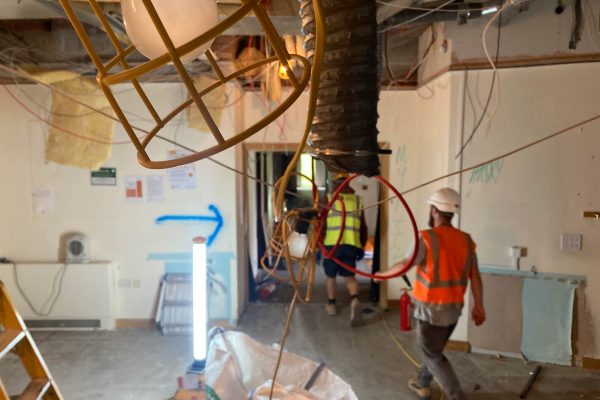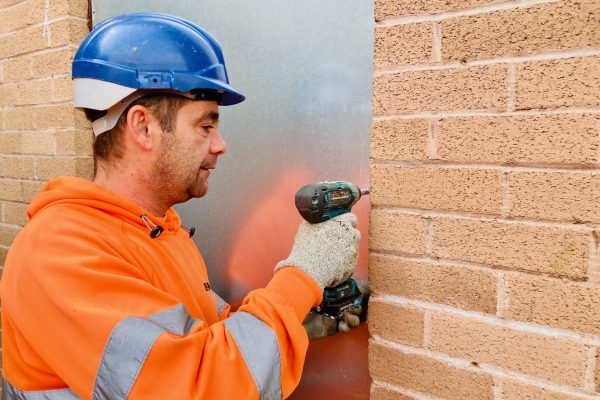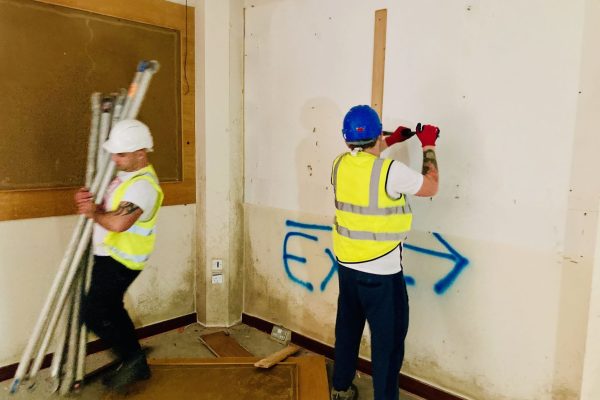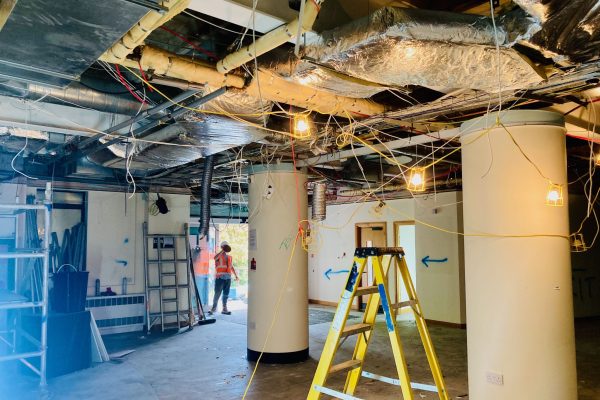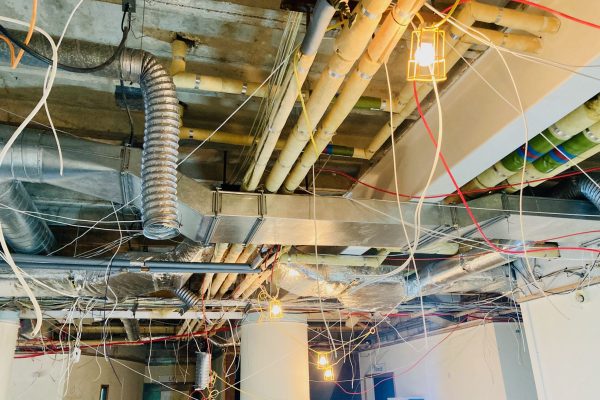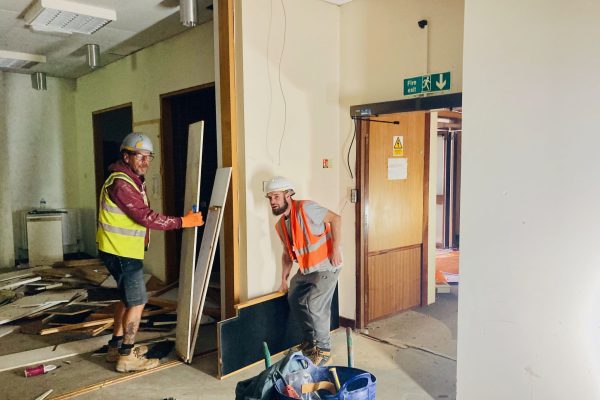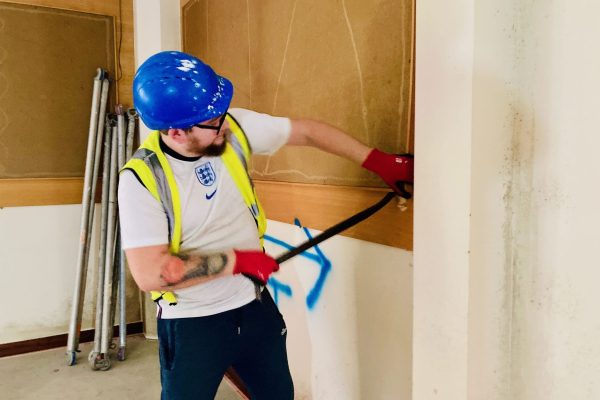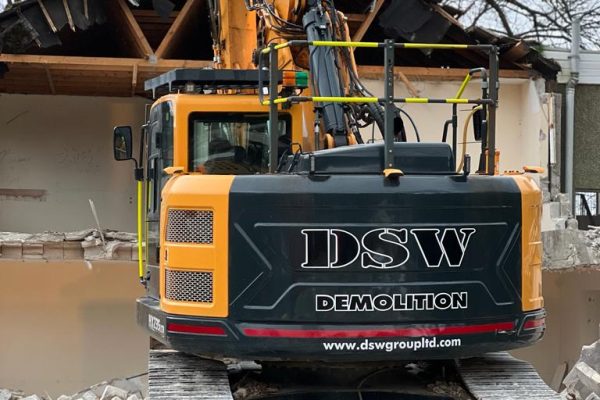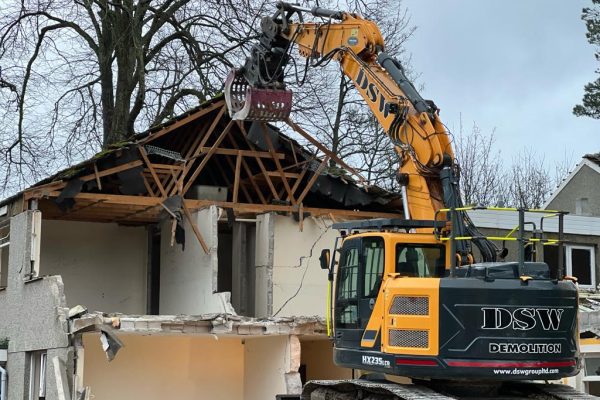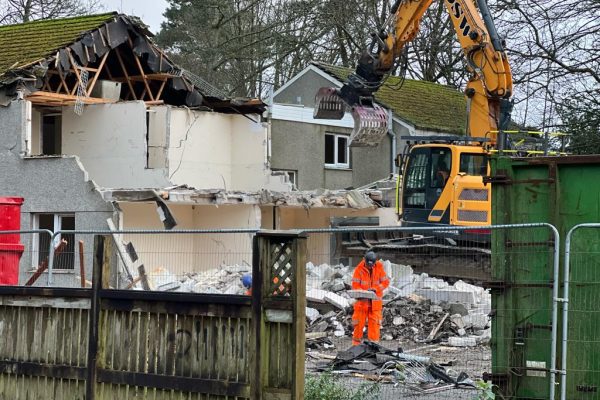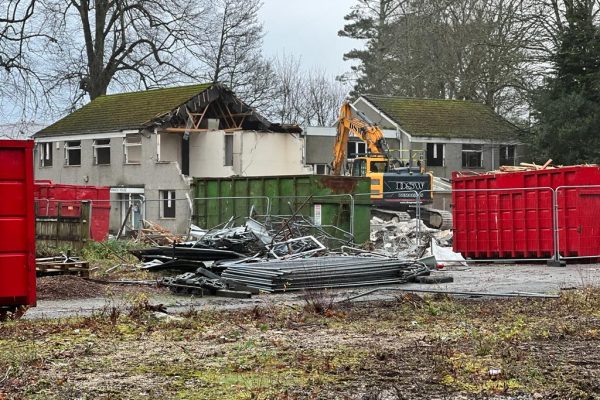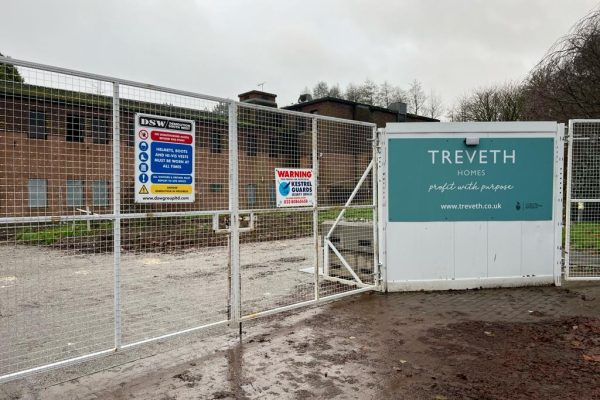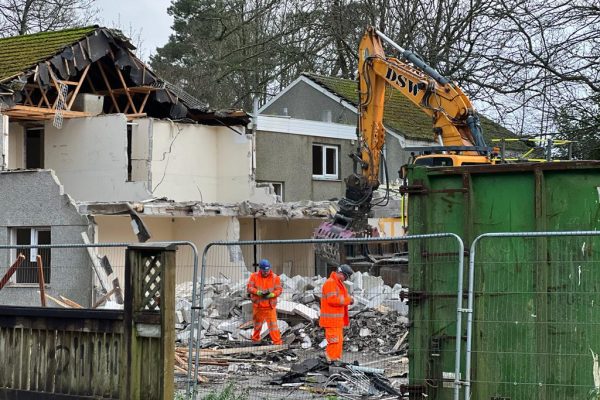What have we done so far?…
-
Soft Strip
As you can imagine with a project of this size and use as offices, the former council building contains numerous fixings and hidden cabling etc.
Soft Strip refers to the initial phase of the demolition process where non-structural elements of a building are removed. This typically includes the removal of fixtures, fittings, interior walls, suspended ceilings, and other non-load-bearing components. The goal of a soft strip is to clear the building of anything that is not considered part of the structure itself, leaving only the core structural elements, such as walls, floors, and columns.
Soft stripping is an essential step in preparing a building for more extensive demolition work. It helps to ensure the safety of workers during the subsequent phases of demolition and allows for the efficient removal of valuable or reusable materials. Once the soft strip is complete, the building will be in a state where it can be safely and more easily demolished.
Demolition South West (DSW) will be carrying-out the soft-stripping of the building for an estimated 7 1/2 weeks, removing communications and electrical cables, door frames, fixtures and fittings, plastic piping, carpets etc. Our team will be sorting waste into various material classification in order to recycle them at our waste transfer station in Cornwall.
-
Demolition
The demolition of Penwinnick House is now nearing completion after a lot of soft strip preparation, licensed and non-licensed asbestos removal, as well as regular discussions with third-party ecology teams who check that we are not disturbing any bats or nesting birds.
We have a single excavator working around the clock (respectable hours, obviously) to flatten the building, whilst our team sort through the waste to separate any materials that can be recycled.
The majority of the waste from the demolition is carefully recycled. Any timber is sent-off for recycling and concrete blocks are currently being separated ready for processing. Once we have finished the demolition, we will move one of our concrete crushers onto the site and process the waste into material that can be used in the next phase of construction. By doing this, we are ensuring that all waste is kept to a minimum and the use of virgin materials is dramatically reduced in the construction phase. It also reduces the requirement for transportation miles, therefore improving the overall carbon footprint of this demolition work.
-
Completion
Demolition work has now been completed at the former Cornwall Council offices in St Austell.
The waste rubble and materials has now been removed and brought back to DSW’s waste transfer station in St Dennis where it has undergone sorting, recycling and crushing.
DSW has a 0% waste to landfill target so the majority of waste that we receive is carefully sorted into different classifications of material. We have our own on-site rubble crushing machinery which reduces larger rubble and concrete into reusable product. Any metal that we received is sold-on to specialist recycling companies who will carry-out further sorting and melting down into new products. The same goes for plastics; we separate it ready for third parties to take it away for the manufacture of new products. Anything that DSW can’t handle within our own facility is taken away to a company which has the facilities to carry-out a more granular separation and recycling process, meaning that DSW doesn’t have to send waste to landfill or incineration.
-
On-Site Crushing
DSW are still working on-site, crushing the concrete slab foundations so that it can be reused in the next construction phase of the project.
Our team generally crush the concrete on site so that it can be used for bulk fill and sub base layers. This grade of aggregate is referred to as 6F5 Crushed Concrete.
